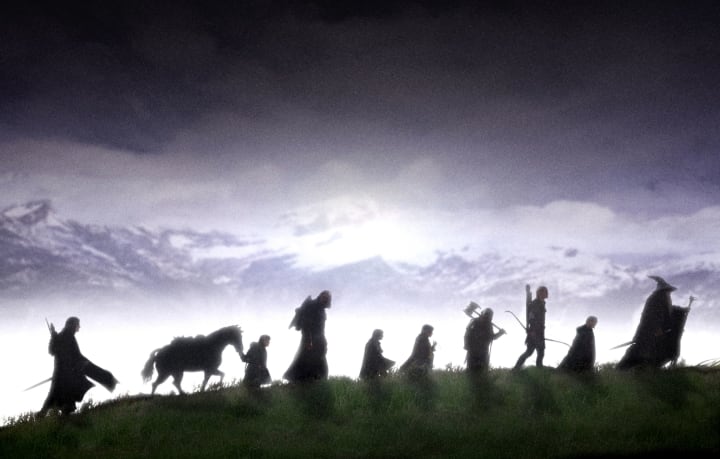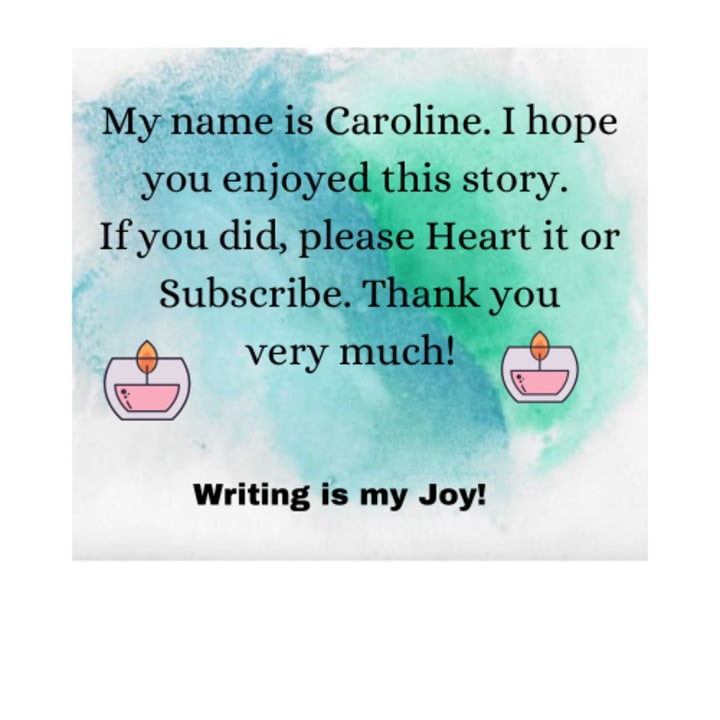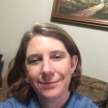The Basics of Fantasy fiction Writing
Use the magic of your Pen!

My favorite genre to write in is Fantasy Fiction. Some of you reading this might be familiar with the topic. Memoir is another favorite of mine.
I’m writing a book and as most writers know, those who carve away at their beloved story idea follow certain rules and protocols when creating their masterpiece. So, I ask you, what is writing?
Writing is getting the reader to think and believe what you're thinking. Writers put forth their ideas and perspectives on paper in such a way, their words draw in the reader's interest on an emotional level. Sometimes the article is an informative “how to piece”, but still, the writer conveys his or her ideas in an effort to get the reader to believe in their knowledge of the said subject and what they think about it.
Like magic dust particles flowing from their pens, writers express through the written word their deepest thoughts and create believable worlds for their reader's enjoyment.
In Fantasy Fiction, the writer creates a believable world far from the world we live in today. It’s important to know your audience with any genre but with Fantasy Fiction there is a broader scale for the writer to create this world and get the reader to believe that the world truly exists. Ideally, to create Fantasy worlds, we look at history, myths, and folklore for ideas. Maps help the reader visually understand the setting.
Some writers of Fantasy Fiction are pulled more towards Sci-Fi, others write Historical Fantasy Fiction. Regardless of what you write, and I say this for any type of genre, the writer’s imagination and knowledge is the catalyst to reeling in the reader’s interest in the story. But you need a plan.
In Fantasy Fiction, who is doing well in your Fantasy world? Who’s worse? Who loses? Who exploits? What’s funny if anything? Fantasy writing gives the illusion something else is underneath the story. Let’s look at the Protagonist.
Your protagonist usually is involved in one of these themes during the story. This is what he or she is looking for throughout the story.
Love, Wealth, Meaning
The protagonist may be on a love quest or searching for a buried treasure, or they are looking for more meaning in their lives and in their person. The Protagonist is on a quest.
The Antagonist is the obstacle. The character attempts to prevent the Protagonist from completing their quest. Throughout the book, the Antagonist throws obstacles at the Protagonist, our hero or heroine. It appears as if our Protagonists may not get what they want in the end. This is where the writer creates compelling scenes and plots, drawing the reader in with a question or a hook at the end of each chapter. What happens next? The reader is enthralled as they turn the pages.
Then there is the Relationship character. This character explains to the Protagonist what they need to learn or do to bring them to the completion of their journey. This is the point of the story.
Currently, I’m reading J.R Tolkien’s, Fellowship of the Ring. Gandalf is the Relationship Character in this remarkable Fantasy story. At the moment Bilbo Baggins leaves the evil ring in Gandalf’s care, here comes Frodo who finds it. Suddenly it’s up to Frodo to dispose of the ring and Gandalf tells him why.
“A mortal Frodo, who keeps one of the Great Rings, does not die, but he does not grow or obtain more life. He merely continues, until at last every minute is a weariness. And if he often uses the Ring to make himself invisible, he fades; he becomes in the end invisible permanently and walks in the twilight under the eye of the dark power that rules the Rings. Yes, sooner, or later-later, if he is strong or well-meaning to begin with, but neither strength nor good purpose will last- sooner or later the dark power will devour him.”
Pages later, Gandalf explains the history of the ring and the evil it withholds. Frodo, the new ringbearer, decides:
“Well!” said Gandalf at last. “Have you decided what to do?
“No!” answered Frodo, coming back to himself out of darkness, and finding to his surprise that it was not dark, and that out the window he could see the sunlit garden. “Or perhaps, yes. As far as I understand what you have said, I suppose I must keep the ring, and guard it, at least for the present, whatever it may do to me. But in the meanwhile, it seems that I am a danger, a danger to all that live near me. I cannot keep the Ring and stay here. I ought to leave Bag End, leave the Shire, leave everything and go away.”
Gandalf reminds Frodo the Ring can only be disposed of in the fiery volcano deep in the heart of Mordor, the depths of evil from which it came. Thus, our Relationship Character explains to the Protagonist the point of the story and the adventure begins.

Core Story Points
When writing Fantasy Fiction there are seven Core story points the writer follows.
The Hook- A world in turmoil. The reversal to the end of the story.
The Question- What’s going on. Certain things the characters wonder about.
The Decision- They involve themselves. This decision is what projects the story until the end but there has to be a consequence.
Fun & Games- The promise of the premiss to “what if”. The scenes that lead our Protagonist towards the completion of their quest.
The Pit- When things get really awful. It looks as if our Protagonist will be defeated. All is lost and our Antagonist takes the lead or a sudden turn of events derails our hero momentarily.
Climbing Out- The big battle. Good against Evil and our Relationship Character tells the hero what he or she must do in the final moments
New World- This is why we read the story. How is the Protagonist’s world different now? What has changed within the world or perhaps, within the Protagonist as a person? What have they discovered about themselves, what have they solved, or claimed?
When writing Fantasy Fiction there is no limit to what you can create. Your imagination will take you as far as you choose to go. The past, the present, the future, it’s up to you. Magic, superpowers, legend, and lore are the makings for a phenomenal Fantasy Fiction Story.
The more you take the story out of the present-day the better. Here is an example. We use email, and text to send quick messages. Isn’t it more intriguing to send a message via another worldly giant Hawk Creature rather than an ordinary email? Personally, I choose the Hawk Creature but that’s just me.
In closing, the great stories we enjoy so much today such as Cinderella, The Lord of the Rings, Star Wars, the wonderful tales of King Arthur and his Knights, and many more were written using the seven Core Story Points for Fantasy Fiction but most of all they were written with passion, imagination, and a thirst for adventure. These stories are the heart and soul of the writer. Their words put down on paper that strike a chord with your emotions, your inner child, your own sense of adventure, and what-ifs.
I invite you to look inside your childhood fantasies. Take a look at your “what ifs” regarding other worlds or worlds you want to create. Is there a Fantasy Fiction story inside you? I’ll be there is!

About the Creator
Caroline-StoryGirlCA
Hi there! I’m a fiction writer. Written all my life. Want to inspire if I can. Living on a guest horse ranch in Baja California, Mexico. Married to a Mexican Cowboy!
Website: carolineaguiarauthor.com






Comments
There are no comments for this story
Be the first to respond and start the conversation.